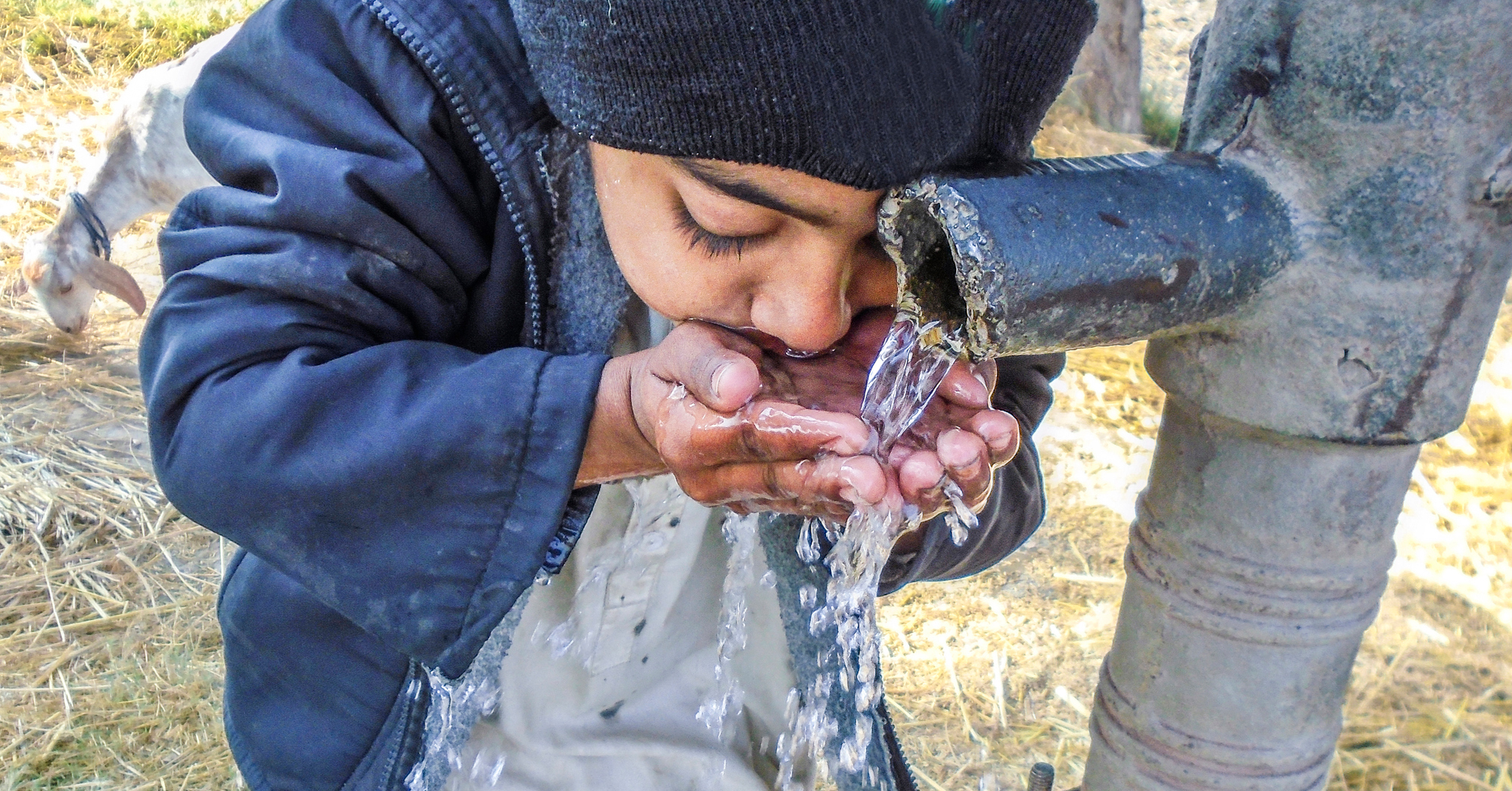

RUNNER-UP
2023 SCHOLARSHIP ESSAY COMPETITION
ALEKSANDER PENKOV
HANNIBAL-LAGRANGE UNIVERSITY
HANNIBAL, MISSOURI
The Sustainable Development Goals (SDGs) of the United Nations lay out a thorough framework for sustainable development that consists of 17 goals and 169 targets. The SDGs seek to eradicate poverty, safeguard the environment, and guarantee that everyone lives in peace and prosperity. Water, sanitation, and hygiene (WASH) are one of the SDGs’ main priority areas because they are essential to fulfilling many of the other objectives.
A non-profit organization called the International Water, Sanitation and Hygiene (IWSH) Foundation strives to enhance WASH in neglected areas of the world. In this essay, we’ll talk about how IWSH may help achieve the SDGs and how the foundation can best set an example.
By enhancing water, sanitation, and hygiene in underprivileged communities around the world, IWSH can support a number of the SDGs in several ways, including the ones listed below:
Goal 1: No Poverty — By addressing a basic human need and easing the burden on households to gather water and manage sanitation, access to safe water and sanitation can help reduce poverty. For instance, people who have access to clean water and sanitary facilities are less likely to become sick and miss work or school, which can boost output and income. Additionally, households that are no longer required to invest a considerable amount of time and money in water collection or sanitation management can reallocate these resources to other priorities such as income-generating activities.
Goal 2: Zero Hunger — For small-scale farmers in particular, access to clean water and sanitary facilities can increase crop yields and food security. Irrigation systems require cleanliness to operate properly, and safe water is also a need. Crops may not grow effectively without access to safe water for irrigation, resulting in lower yields and food scarcity. The development of waterborne infections, which can affect agricultural laborers and lower output, can also be facilitated by insufficient sanitary facilities.
Goal 3: Good Health and Well-being — The spread of diseases like cholera, diarrhea, and typhoid fever can be slowed down via better water quality, sanitation, and hygiene. By funding WASH facilities and services, IWSH can significantly lower the prevalence of waterborne illnesses. To ensure that people and communities have access to safe drinking water, the foundation, for instance, can assist in the construction or improvement of water treatment and distribution systems. The foundation can also assist in promoting good hygiene habits like washing hands with soap after using them, which can dramatically lessen the spread of waterborne infections.
Goal 4: Quality Education — For girls who could skip school during menstruation, access to safe water and sanitation can increase attendance rates and decrease the number of days missed due to illness. The IWSH Foundation can contribute to raising attendance rates and lowering the number of days missed due to illness, especially for girls, by making investments in WASH services and infrastructure. For instance, the foundation might assist in creating or upgrading sanitary facilities in schools, such as restrooms with separate stalls for boys and girls and ones with menstrual hygiene management services. This can make it possible for girls to go to school on a regular basis, even during their period, and to have access to the resources they require to take care of their personal hygiene.
Goal 5: Gender Equality — Girls and women can be given privacy and dignity with better access to water and sanitary facilities, especially during the menstrual cycle. Girls and women in many areas struggle to maintain their menstrual hygiene due to a lack of adequate sanitary facilities. This frequently results in missed work or school days, which can harm someone’s education, employment chances, and all-around wellbeing.
Goal 6: Clean Water and Sanitation — Enhancing access to clean water and sanitation is the primary goal of the IWSH Foundation, which is directly tied to this SDG. The wellbeing of individuals, families, and entire communities depends on having access to hygienic facilities and clean water. According to estimates from the World Health Organization (WHO), 2.2 billion people worldwide do not have access to safe drinking water, and 4.2 billion do not have access to basic sanitation facilities. An increase in water-borne diseases including cholera, typhoid fever, and diarrhea, which can be lethal, especially for the elderly and young, is linked to poor sanitation and water access.
Goal 10: Reduced Inequalities — Access to sanitary facilities and drinkable water helps reduce inequality by improving the health and economic outcomes of disadvantaged communities. According to the World Health Organization, having more access to clean water and sanitary facilities can help reduce the spread of these diseases. People who live in poverty and children under the age of 5 are particularly at risk for developing water-borne infections. Among other projects and activities of the IWSH Foundation, the WASH in Schools program and disaster response programs can help guarantee that disadvantaged groups have access to sanitary facilities, reducing their risk of contracting water-borne diseases.
Goal 11: Sustainable Cities and Communities — With better water and sanitation, urban living can be improved, and the environmental repercussions of poor sanitation can be reduced. For a large and growing population, urban regions must handle unique concerns relating to accessibility to clean water and sanitary services. In urban areas, the absence of clean water and sanitary facilities can have a negative impact on one’s health and contribute to the spread of water-borne diseases. The IWSH Foundation’s initiatives to improve urban residents’ access to sanitary facilities and clean water can improve their health and promote environmentally responsible urban development.
Goal 13: Climate Action — Improving water and sanitation can help reduce greenhouse gas emissions by removing the need for firewood and charcoal to boil water and by providing alternatives to chemical fertilizers. The impact of a plumbing system on energy consumption and greenhouse gas emissions can be substantial. The plumbing system’s layout and installation can have an impact on the amount of water used, the energy required to heat the water, and the amount of water wasted. Sustainable plumbing practices can significantly reduce plumbing systems’ negative environmental effects and aid in climate change efforts. Use of low-flow fixtures, rainwater collection systems, and greywater reuse systems are a few examples.
The IWSH Foundation may put a few best practices into action to make sure that its programs are long-lasting, efficient, and address the needs of the communities it serves in the best possible ways by setting an excellent example. Some of the better techniques that the IWSH Foundation can use are as follows:
- Community Participation — Engage community members in the planning, implementation, and monitoring of water and sanitation programs to ensure that programs meet their needs and are culturally appropriate.
- Sustainability — Ensure that programs are sustainable by building local capacity, promoting behavior change, and investing in maintenance and repair.
- Technology — Use appropriate technology that is locally available and sustainable, and that meets the specific needs of the community.
- Monitoring and Evaluation — Regularly monitor and evaluate programs to measure impact, identify areas for improvement, and ensure that resources are used effectively.
- Partnerships — Collaborate with other organizations, governments, and stakeholders to leverage resources, share knowledge, and coordinate efforts.
- Innovation — Encourage innovation and experimentation to find new and effective ways to improve water, sanitation, and hygiene.
In conclusion, through enhancing water, sanitation, and hygiene in underprivileged areas around the world, IWSH can support a number of the United Nations Sustainable Development Goals. Many of the SDGs, including lowering poverty, enhancing health and educational achievements, and advancing gender equality, depend on having access to safe water and sanitation.
IWSH may put various best actions into practice, including community involvement, sustainability, suitable technology, monitoring and evaluation, partnerships, and innovation, to best lead by example. The IWSH Foundation can make sure that its programs are long-lasting, efficient, and suit the needs of the communities it serves by using these best practices.
The work of the IWSH Foundation is crucial to reaching the Sustainable Development Goals of the United Nations and bettering the lives of millions of people worldwide. The IWSH Foundation can significantly support global initiatives to promote sustainable development and guarantee a brighter future for everyone by continuing to prioritize water, sanitation, and hygiene and by putting best practices into practice to set an example for others.
Last modified: December 6, 2024
